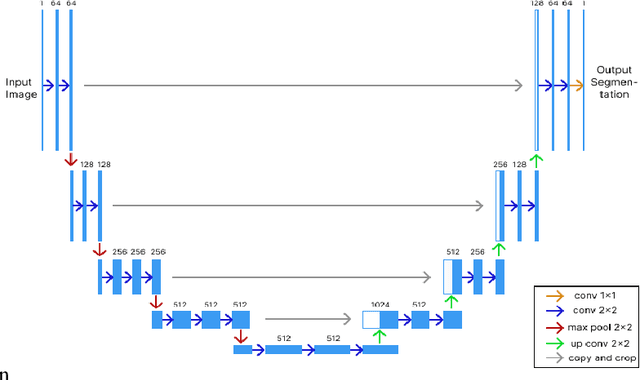Deepfake Image Generation for Improved Brain Tumor Segmentation
Paper and Code
Jul 26, 2023



As the world progresses in technology and health, awareness of disease by revealing asymptomatic signs improves. It is important to detect and treat tumors in early stage as it can be life-threatening. Computer-aided technologies are used to overcome lingering limitations facing disease diagnosis, while brain tumor segmentation remains a difficult process, especially when multi-modality data is involved. This is mainly attributed to ineffective training due to lack of data and corresponding labelling. This work investigates the feasibility of employing deep-fake image generation for effective brain tumor segmentation. To this end, a Generative Adversarial Network was used for image-to-image translation for increasing dataset size, followed by image segmentation using a U-Net-based convolutional neural network trained with deepfake images. Performance of the proposed approach is compared with ground truth of four publicly available datasets. Results show improved performance in terms of image segmentation quality metrics, and could potentially assist when training with limited data.
 Add to Chrome
Add to Chrome Add to Firefox
Add to Firefox Add to Edge
Add to Edge